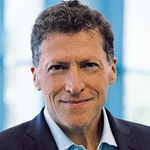
Arnie Weissmann
At the Explorers Club's Global Exploration Summit in Porto, Portugal, last month, Virgin Galactic experience architect Joe Rohde sat with astronauts on a panel and talked about the importance of creating a "culture of meaning" to help astronauts fully understand and appreciate their experience once they've returned from space.
I wondered: Is that true for Earth-bound experiences, as well?
I first met Rohde when, as a Disney Imagineer, he was lead designer of the Animal Kingdom theme park. After the summit moved to its "part two" location on the Azores island of Terceira, I asked him whether travel professionals -- advisors, tour operators, cruise executives, resort managers -- could benefit from the process he used to enhance experiences in theme parks and suborbital space.
Absolutely, he said, there is a process that can deepen any experience. He explained it to me, step by step.
How your brain registers an event can be divided into three parts: what leads up to it, whether the experience is perceived as exceptional and what follows. In most instances, he said, what leads up to and follows an experience is "completely random. But if you're involved in experience design, you cannot allow them to be random."
In the context of travel, an "exceptional" experience is expected; people travel to seek exception from routine. But to maximize the experience, travel professionals must have a strong hand in crafting the pre- and post-experience. While care must be taken to remove anxiety and nervousness about the trip beforehand, it's equally critical that some information be withheld to keep the experience exceptional. "The unexpected things which are positive will add greatly to their sense of experience," Rohde said.
Where things truly come together is after the moment of experience.
"You still don't know what has happened to you until you begin to process it," he continued. "Our brain is so slow that even things that we think are happening to us have actually occurred significant amounts of time earlier. By the time we process them, they're gone. The story you ultimately tell yourself about what happened to you is an important part of the experience."
Before a trip, travel professionals may think they know where the peaks of experience, the most exceptional moments, will be.
But the more complicated the trip, the more difficult that becomes.
"They're so full of details and moving parts that you can't predict what exactly will happen and how [clients will] react," Rohde said. "You can't change how they'll react, but you can learn from it and rethink your approach to make outcomes more consistent with your desire for the best experience."
The timing for seeking client feedback is critical, and Rohde thinks most people do it too soon.
"Most organizations ask, 'How did we do?' immediately after the event. This is not when to do it. It has not yet been processed. They haven't formed a narrative yet. They'll tend to tell you what they think you want to hear or focus on three little complaints," he said. "You need to wait possibly as much as six months before you circle back and say, 'Tell me the story of what happened to you on this trip, how you value it and what do you think of it? What are you telling people when you tell them what happened to you?'
"That is when you'll get a story that's useful to best frame the experience for the next person," Rohde continued. "You'll refine your ability to find the right people for the experience and how best to prepare them. And you're greatly increasing the viral spread to other likely clients because they are telling a story that is consistent with your intent."
What struck me about Rohde's description of the process is the importance of allowing enough time after the experience. I think most travel professionals are diligent in arranging a trip for maximum impact, though they may overshare about peak moments ahead of time, which can potentially weaken some of the exceptional aspects of the experience.
And while most may touch base with a "How did it go?" phone call after a client returns -- no harm in that -- it's unlikely that call will accrue the same benefits as reaching out after six months and saying, "I'm curious; now that some time has passed, I'd like to hear about what still stands out about your experience."
Rohde spoke to me about the differences in how his approach worked with Disney (a nonrandom experience) and Virgin Galactic ("There's nothing artificial; it's rocket science, right?"). With both, however, he said, "the process leading up to it and the process leading out of it are still an act of design. Both can be made more meaningful by how they're framed; if we properly receive you at the end, give you time to process and return to you, you'll not only have the most positive emotional and cognitive reaction, you'll have a story to tell."